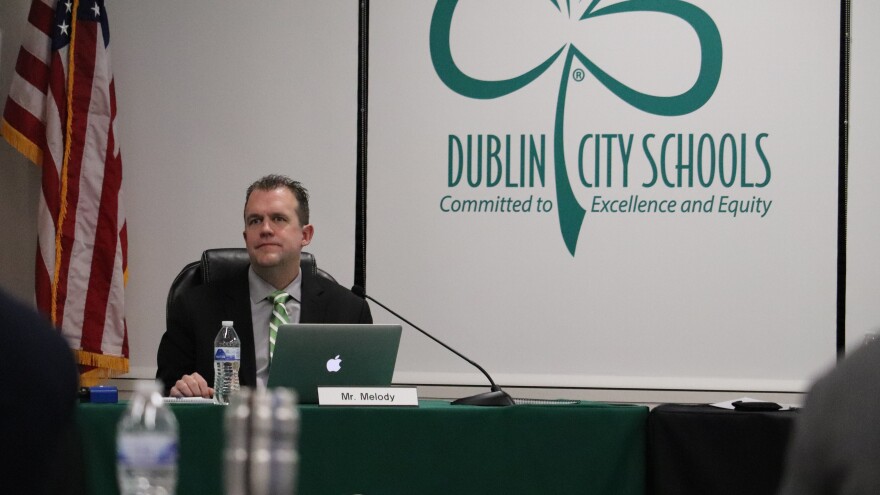It's the latest school board meeting in Dublin, and about 30 or so people are in attendance.
The main issue concerning parents: the board's plan to lift masking requirements for Pre-K through 8th grade students.
Each parent was given three minutes to plead their case to board members.
“It saddens me to think that a child did not experience a prom or the first day of kindergarten, their little league championship, the chance to hold hands with a friend," said Keith Barnes, who has grandkids in the district.
The board ultimately sided with parents who spoke, voting to end the mask mandate starting this week. But this isn't a story about school mask policy.
Across the country, school board members have increasingly been confronted at meetings by parents and community members angry over everything from mask mandates to how the history of racism is taught in the classroom.
“To be honest with you, prior to the last couple years, hardly anybody would show up to a meeting and hardly anybody actually spoke at meetings,” said Ralph Lusher, a staff attorney with the Ohio School Boards Association.
Lusher said that all changed when the pandemic hit, and school boards across the country saw a dramatic increase in the number of community members showing up at meetings wanting to make their voices heard.
The thing is, Lusher said, technically it isn't a guaranteed right for the public to speak at school board meetings in the first place.
"It is a very common misconception," he said.
Still, school boards generally try to give constituents ample time to speak. But that's been a challenge for districts throughout central Ohio, including Dublin.
“In the fall, we had a number of participants continually coming talking about the same subjects, they were allowed three minutes to talk. And we would basically just listen to them for three minutes and say 'Thank you' and not really have any any dialogue or discussion interaction," said Dublin school board president Scott Melody.

Board members wanted better dialogue, Melody said, and so starting in January, they changed the format.
People can bring up items not on the board's agenda only during a public session on the second meeting of the month. The idea is to give 45 minutes to an hour for more in-depth, back and forth discussions.
"It could definitely use some improvement," Melody said. "Last month when we did it ... we were all sitting at our normal tables in the board meeting, and the participants were really sitting in front of us. So it was almost like putting them all on a witness stand. And I don't think it was very comfortable for them to be surrounded by the board."
The Dublin board plans to hold its next public session on February 28 in the cafeteria across the hall.
Stacie Raterman is director of communications for Hilliard City Schools. She said they’re staying the course on how they take public comment.
"I think at Hilliard, we've been really lucky. We have a lot of passionate parents and community members. But they've been respectful. We haven't really seen over-the-top emails and calls and people showing up at the board meetings. There's been a few,” Raterman said.
She points to one school board meeting this past fall where over 200 people showed up.
"We normally have 30 minutes of public participation, but the board wanted to hear from everybody. So they extended it. It was probably about an hour's worth of public participation," Raterman said.
"Nobody had to be kicked out. Nobody had to be escorted out. There wasn't shouting and fighting amongst community members or any of that stuff you're seeing on a national or grander scale.”
Back in Dublin, meeting attendees seemed mostly pleased with the change.
“I think that's a good faith effort to allow some dialogue to exist between the board and the community where you can ask questions and you can actually talk,” Barnes said.
School administrators also hope to see more constructive criticism moving forward and fewer personal attacks.
Ralph Lusher with the Ohio School Boards Association said school board members are human beings deserving of civility.
“Some people may have agendas, but [for] the most part, they're doing this out of the goodness of their heart," he said. "They're not getting paid. I mean, you're capped at $5,000 a year. So there's not even a chance to make more than that. These are good people in the community that are trying to do the best thing for schools.”




